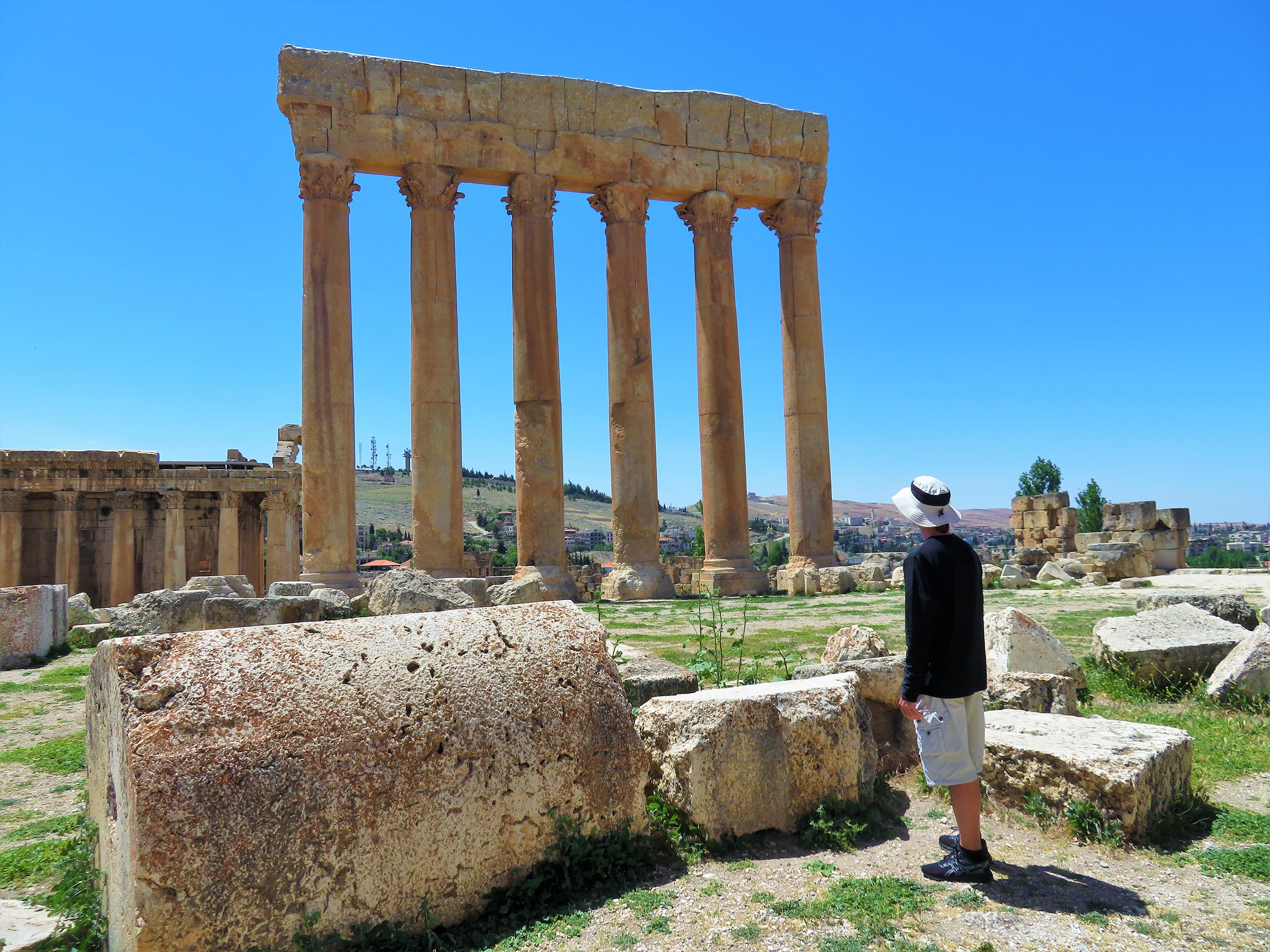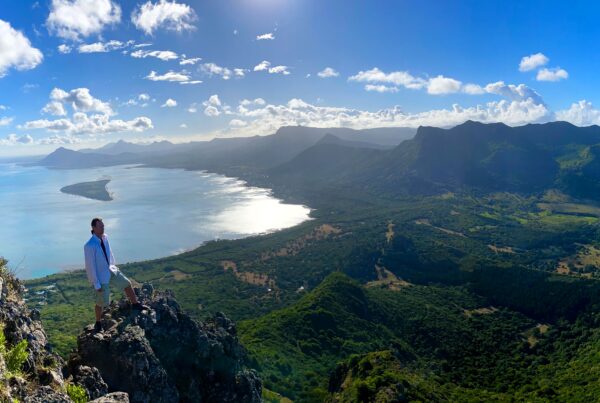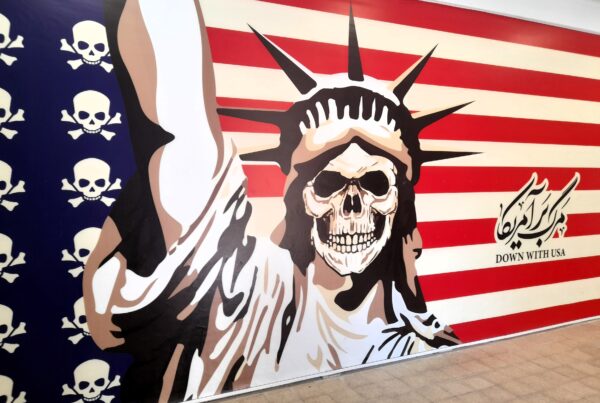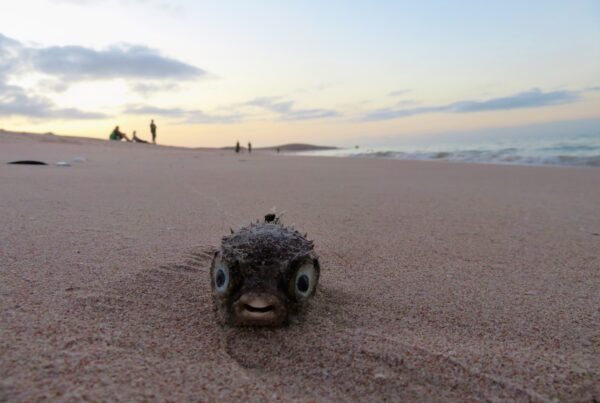“When I buy ancient coins, Kim, am I supporting poor locals or illegally trafficking Lebanese heritage?”
I’m walking through the heart of Phoenicia, where three thousand years earlier the original Lebanese people squeezed snot from rotting sea snails to make purple togas for kings and queens. Medusa guards a tomb surrounded by pink oleander. I avoid stepping on Roman mosaics as I suck in Tyre’s ancient culture. Out of the corner of my eye I see a man walking toward me with purpose. I know a sales pitch is coming.
The man has a case full of artifacts including coins, jewelry, and figurines. “This coin is Byzantine, this lamp is Roman, this glass is Phoenician.”
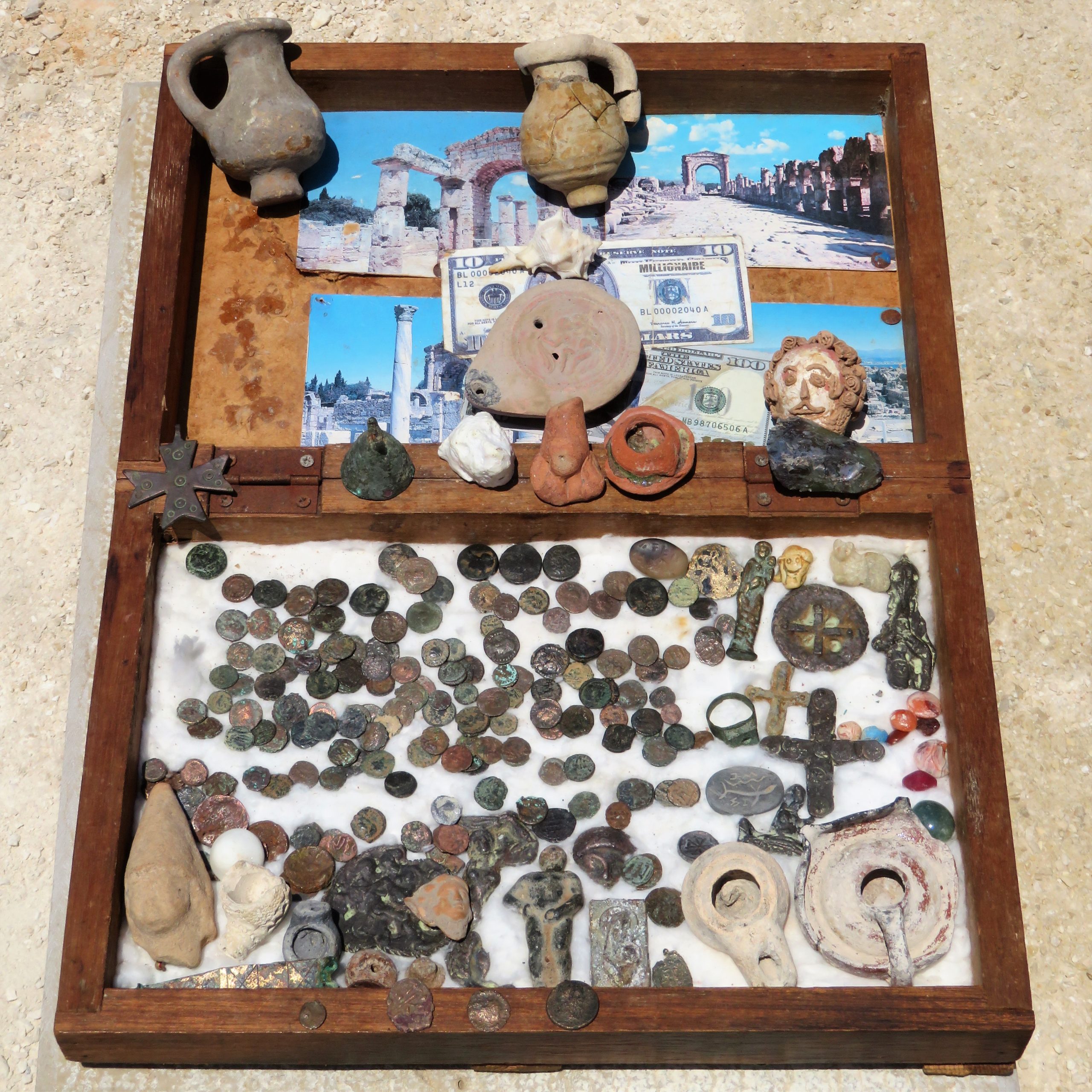
The Phoenicians dominated the Mediterranean before the Romans and Greeks from 1500 BC—getting their name from the Greek word porphyra meaning purple.
But unlike the Romans, the Phoenicians expanded their empire without waging war. Instead, they established trading colonies with their state-of-the-art ships loaded with precious metals, papyrus, glass, and their most famous products, cedar wood and rare cloth dyed purple.
“How do I know they’re real?” I ask.
“I found them myself.”
Then he leads me to the edge of the archaeological park and points to his fellow treasure hunter snorkeling in the shallow Mediterranean. “See all those pillars, they’re Phoenician. When the tide is low you can see the oldest Tyre ruins, the original city that Alexander conquered.”
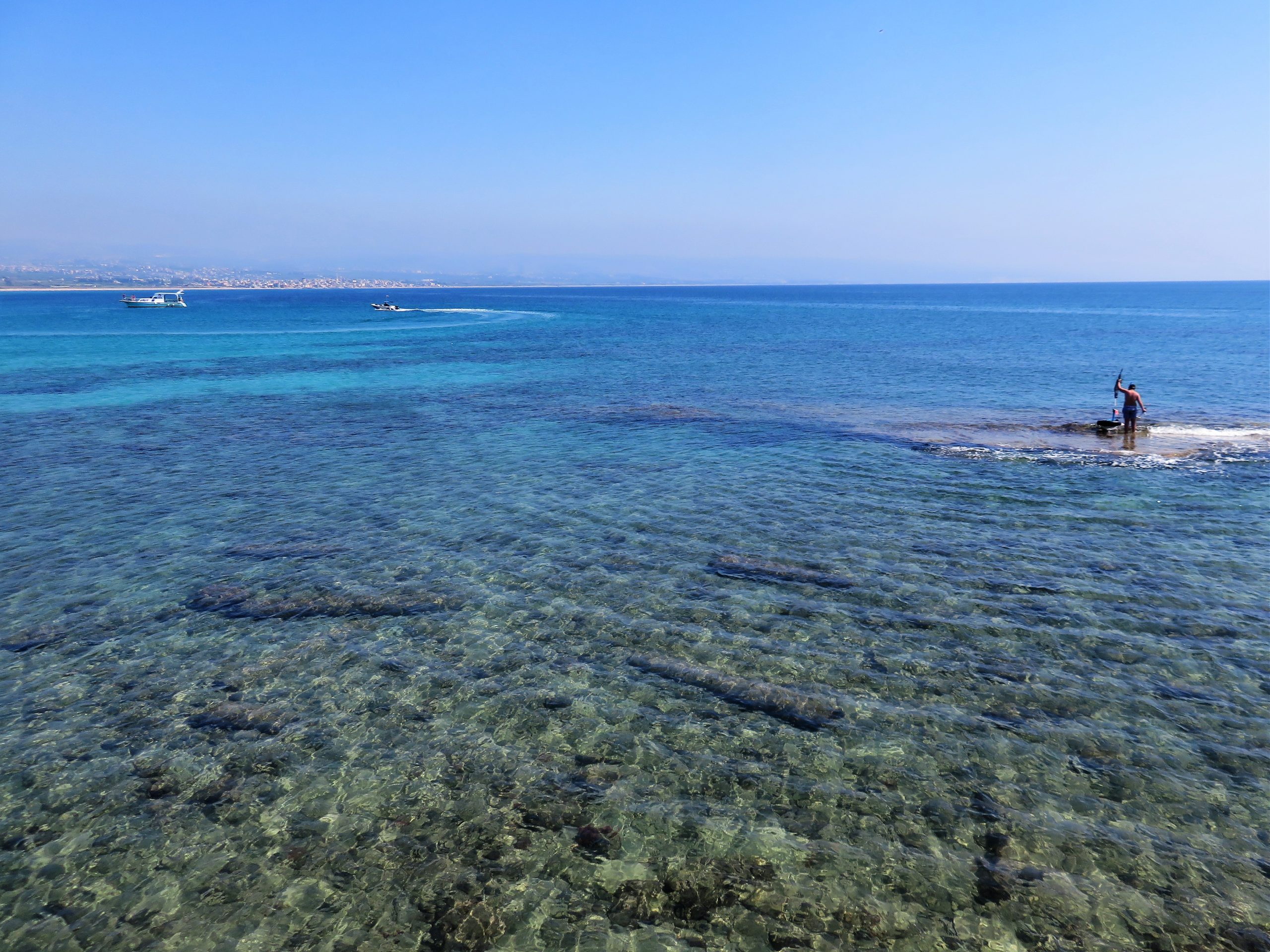
I buy three coins, one from each dynasty, for 400,000 Lebanese lira or about US$13. Imagine, Kim, how fun it would have been to hunt for antiquities when we used to wade in the tide pools of Bird Rock.
Ten days earlier, after creating our first Kim’s View-Lebanon at Baalbek—where Phoenicians worshipped their god of storm, Lord Baal—I bought seven coins for 300,000 lira ($10) from a man who said the same thing, “I found them myself. You’re lucky because I need money.”
No way these coins are authentic, right Kim? These guys could sell real coins for hundreds or even thousands of dollars. But what if the coins are real, and they have no way to sell them legally? Begrudgingly, I know there’s a moral argument that I’m doing something shady.
The next day I return to the Tyre archeological park with two talls of local Almaza beer. I want to learn more about antique coins and the people who sell them. At first, I don’t see my treasure-hunting amigo and my heart sinks. But within five minutes, he appears from the brush. He takes me back to his sales hut to escape the blazing sun and talk ancient artifacts.
His name is Shanana. No shit, Kim, that’s his real name.
Shanana used to work overseas and he talks continuously until I interrupt with questions.
“Police, mafia, two names (but) same … we are not Arabs, we are Phoenicians.” He sums up Lebanon’s sad situation perfectly.
“Israel out, America out, Syria out, Iran out, then Lebanon will have peace.”
“Is it legal to sell these ancient artifacts?” I ask.
“I have to eat,” Shanana says.
I show him the coins I bought in Baalbek. “Not original. Not original. Not original … they are copies from Syria.” I feel a sharp pain in my keester.
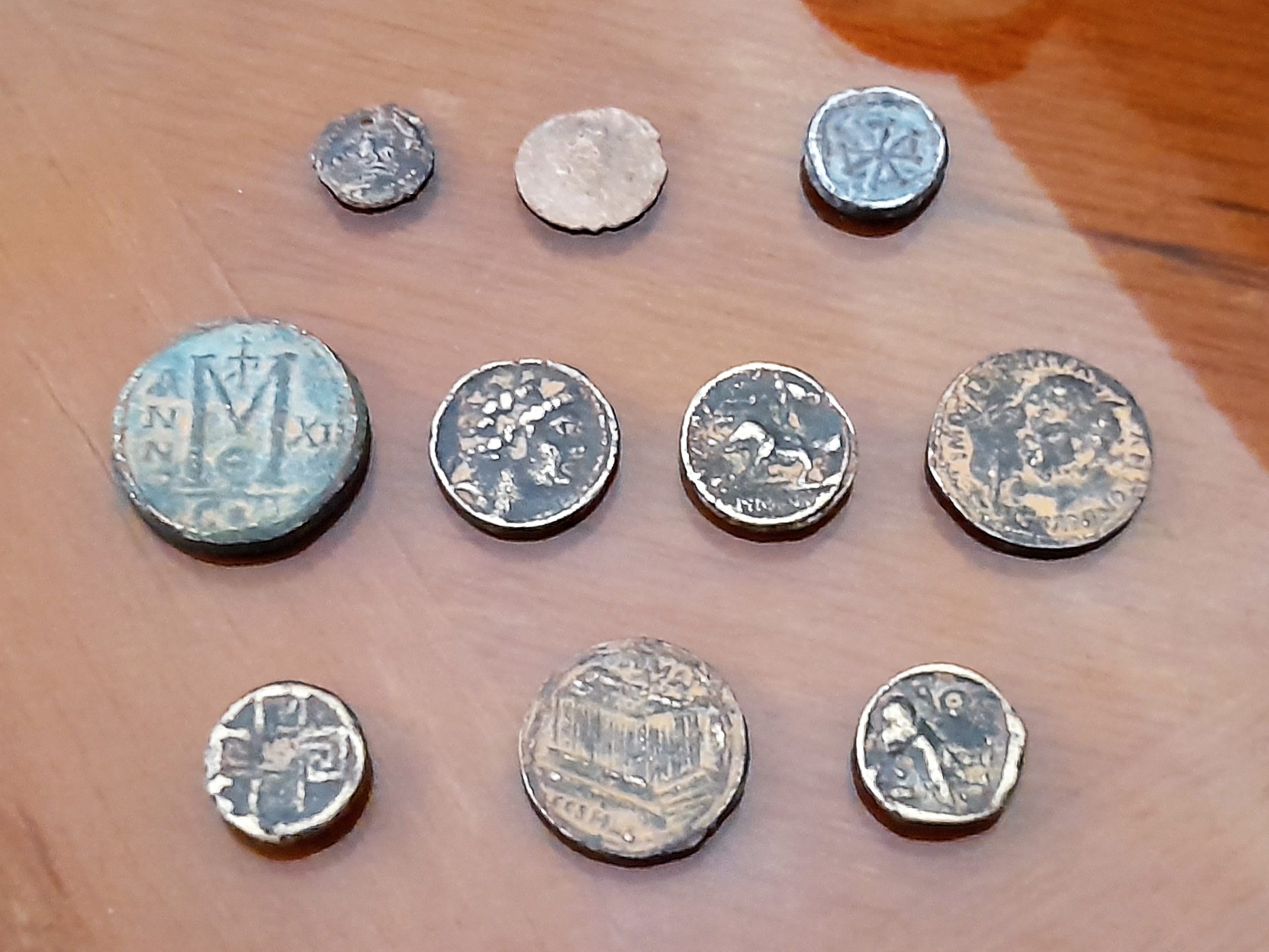
I invite Shanana to have another beer with me but he respectfully declines, “Sometimes I get crazy.”
My three-week Lebanon adventure is over. In Beirut’s airport I see a sign saying, “Our heritage is not for sale. Don’t take part in the theft and illicit trading of antiquities.”
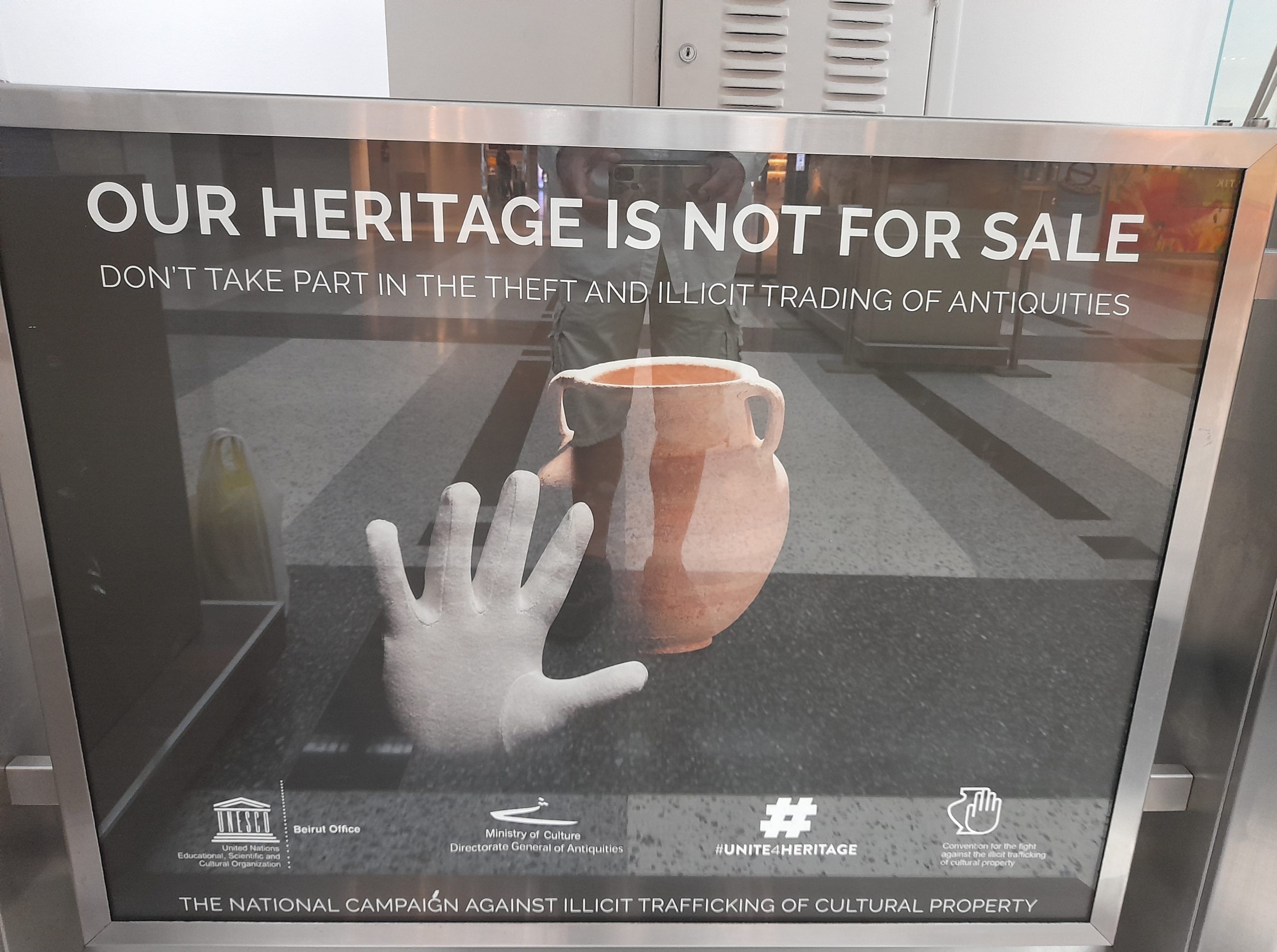
So, if I buy fake coins, am I trafficking cultural property or am I just a sucker? And if Shanana finds a Phoenician ring while snorkeling outside the archeological park, should he turn it over to the Lebanese government?
The government that’s made up of former Christian, Sunni, and Shia warlords that massacred women and children for 15 years during Lebanon’s civil war.
The government that criminally mismanaged Beirut’s port leading to one of the largest non-nuclear explosions in history that killed 214 people.
The government that’s driving Lebanon into a ditch and pretends one US dollar will buy 1500 Lebanese pounds when in reality one dollar buys 30,000 pounds.
Of course not. Finders-keepers, baby.
Hopefully, Sis, Lebanon will return to its Phoenician roots and start prospering again through trade instead of war. KV
